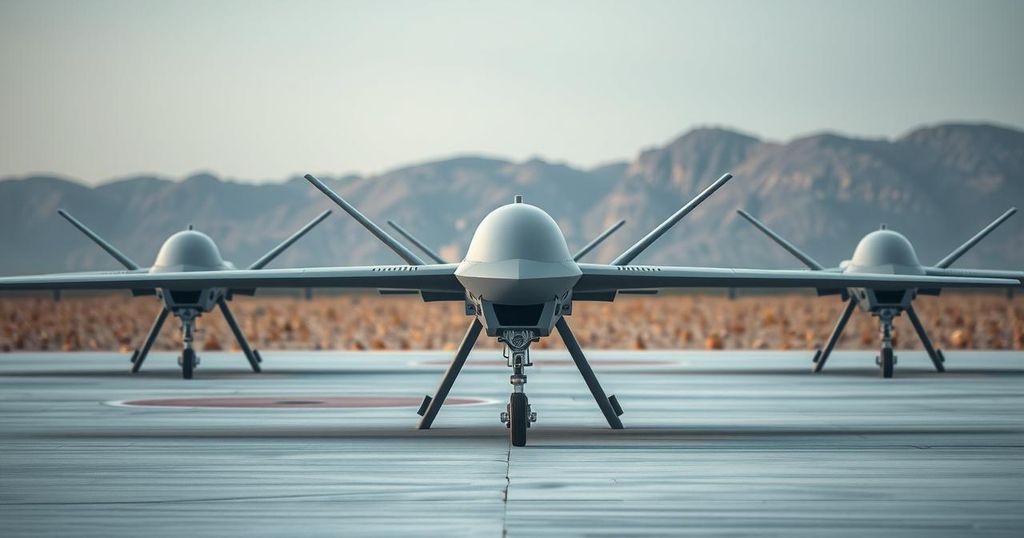North Korea’s Military Cooperation with Russia Deepens Amid Drone Showcase

North Korean leader Kim Jong Un has displayed new drones, coinciding with reports of 3,000 troops sent to assist Russia in the Ukraine conflict. Relations between North Korea and Russia are strengthening, raising concerns about military technology exchanges and the battlefield experience of North Korean forces.
North Korean leader Kim Jong Un has showcased new military drones amidst reports that an additional 3,000 North Korean troops have been dispatched to aid Russia in its ongoing war against Ukraine. On March 27, images were released depicting Kim inspecting reconnaissance and attack drones at an undisclosed location, raising international concerns regarding potential drone technology exchanges between Russia and North Korea for military aid benefits.
According to South Korea’s Yonhap news agency, approximately 3,000 North Korean troops were reportedly sent to Russia in January and February, augmenting an earlier deployment of 11,000 soldiers who have already been engaged in the Kursk region of Russia. Ukrainian analyst Oleh Saakyan noted that Russia is increasingly dependent on North Korea for various military resources, which now includes personnel, in addition to munitions and weaponry, indicating a deepening military alliance.
Furthermore, plans for Kim’s visit to Moscow later this year were indicated by Russia’s Deputy Foreign Minister Andrei Rudenko. Historically, Kim has made previous journeys to Moscow in 2019 and 2023, meeting with Russian President Vladimir Putin. Relations between Russia and North Korea have notably strengthened since Russia’s invasion of Ukraine in 2022, with North Korea contributing troops, missiles, and artillery systems.
Saakyan commented on the growing difficulties in the Russian economy and its military mobilization efforts, emphasizing that more weapons from North Korea are emerging on the battlefield. The newest troop deployment also involves additional weaponry and ammunition, according to assessments from the Joint Chiefs of Staff (JCS) in South Korea. Russia has also pressured Western nations to cease military support for Ukraine as a precondition for a ceasefire.
Despite early setbacks experienced by North Korean troops, who faced significant losses due to Ukrainian drone attacks, their efficacy appears to have improved in recent conflicts, aiding in the pushback of Ukrainian forces in Kursk. This development has raised alarms in South Korea regarding North Korea’s possible acquisition of battlefield experience and potential technology transfers from Russia.
North Korea’s state media reported on March 27 that Kim expressed satisfaction with the new drones. He indicated an intention to increase production, positioning drones and artificial intelligence as key priorities for the regime. Military analyst Lee Sung Joon from South Korea suggested that while the showcased drone may contain components from Russia, it likely exaggerates its capabilities and may be vulnerable to interception.
In summary, North Korea’s military partnership with Russia is intensifying, marked by the dispatch of troops and the showcasing of new drone technology. The strategic alliance is evident in the exchange of resources and military support, highlighting concerns regarding North Korea’s growing involvement in the conflict in Ukraine and the potential transfer of advanced military technology. Observations suggest that the North Korean military’s initial struggles may be easing, allowing for increased effectiveness in combat situations.
Original Source: www.rferl.org






